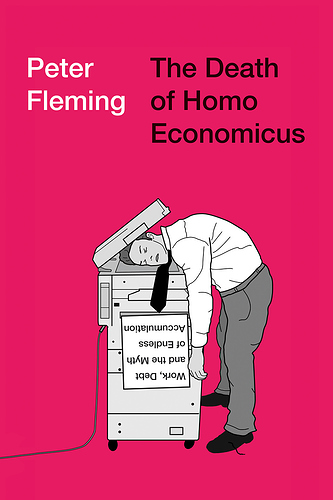At Public Seminar, Vince Carducci reviews The Death of Homo Economicus: Work, Debt, and the Myth of Endless Accumulation by Peter Fleming. A heretical business-school professor, Fleming argues in his book that homo economicus—that self-serving figure of human nature that underpins capitalism—is no longer credible intellectually or structurally. Here’s an excerpt from Carducci’s review:
Fleming terms this something worse “wreckage economics.” It seeks to appropriate all aspects of what’s left of the commons, a twenty-first century enclosure of the already tattered public domain. It polices its economic pillaging assiduously, leaving no stone unturned in the interest of unlocking value. It disdains democracy. It perpetuates and exacerbates inequality — indeed, as opposed to the 1930s when the global elite lost a significant portion of its wealth, wreckage economics has enabled those at the very top to greatly expand their share at a rate that has only increased since 2008.
Fleming documents his thesis with examples taken mostly from around the English-speaking world. They include Dawn Amos, a 67-year old woman with chronic lung disease who was certified to return to work by the UK Department of Work and Pensions, only to receive that notification on the very day she died in the hospital from complications of her condition. Others include the rash of suicides that have occurred in the face of mounting debt. On a less fatal level is the plight of those members of the precariat who have been casualized, rendered redundant, and otherwise dispossessed from the means of making a decent living, much less securing a future. Through it all, homo economicus has roamed unchecked as a kind of undead, relentlessly devouring those who are least able to resist.
